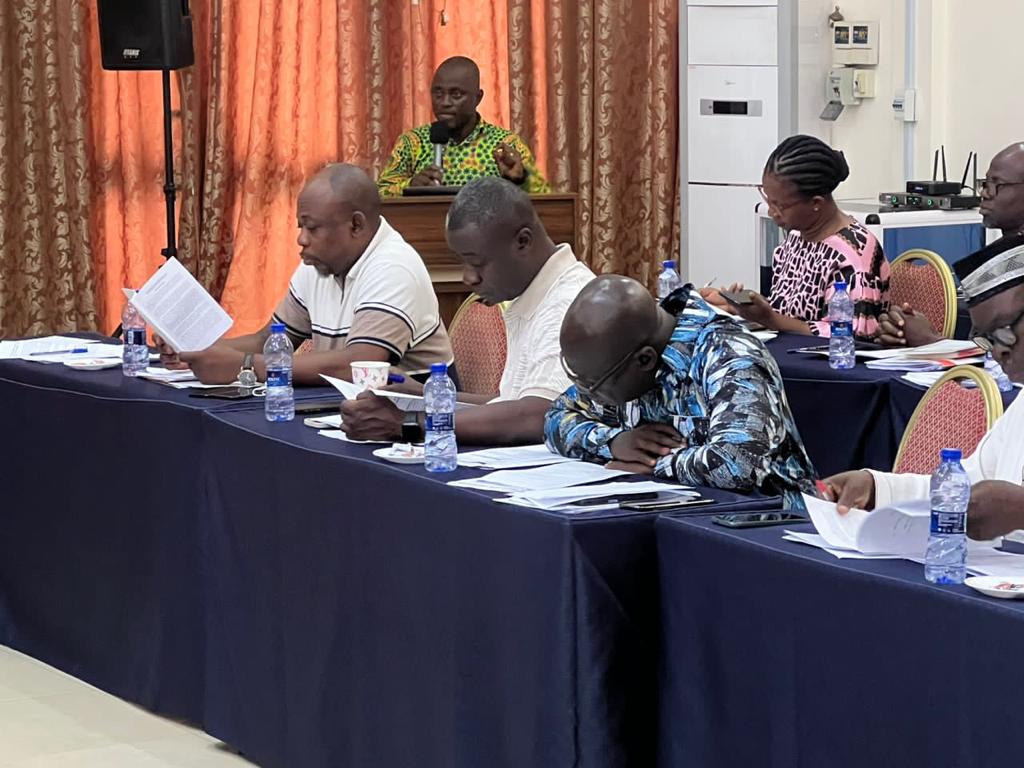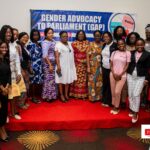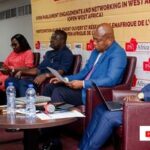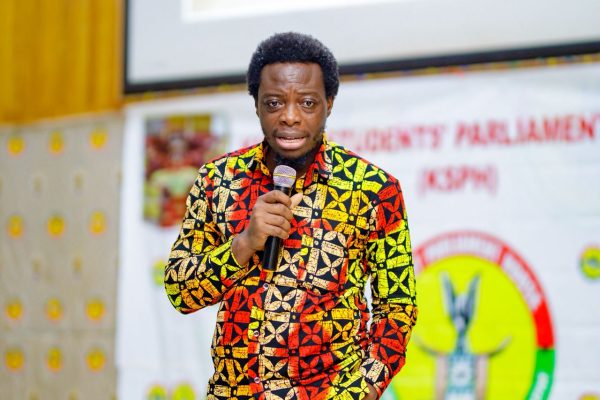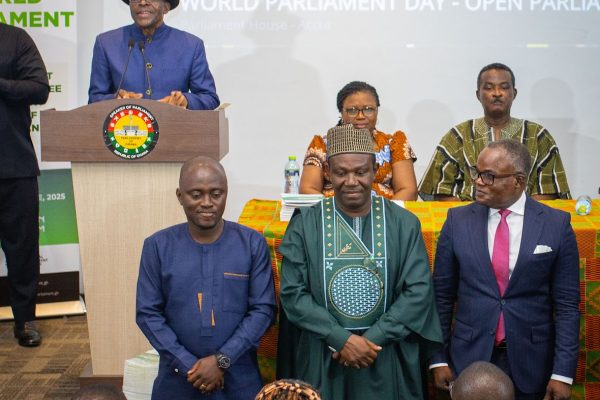As part of the Gender Advocacy to Parliament (GAP) Project, the Parliamentary Network Africa (PNAfrica) collaborated with the Constitutional, Legal, and Parliamentary Affairs Committee of the Parliament of Ghana to deliberate on the Interstate Succession Bill on 29th May 2023.
During the session, Mr. Sammy Obeng, the Executive Director of PNAfrica, addressed Members of Parliament (MPs) and emphasized the urgency of passing the Intestate Succession Bill. He highlighted the dismay over the Bill repeatedly being brought before Parliament since 2009 without being successfully passed. Mr. Obeng expressed the organization’s unwavering commitment to drive a robust civil society legislative advocacy to ensure the Bill progresses through all parliamentary stages and ultimately becomes law.
The primary objective of the new Intestate Succession Bill is to rectify the inconsistencies present in the famous “PNDC Law 111” concerning intestate succession. By providing a uniform intestate succession law that applies nationwide, regardless of the inheritance system or type of marriage contracted, the Bill aims to establish a fair and consistent framework for distributing estates of those who die without leaving a will. After the committee submitted its report on the Bill to Parliament, it was debated and successfully taken through its Second Reading on 21st June 2023.
Apart from the Intestate Succession Bill, the Committee also examined another vital legislative proposal – a Bill “to amend the Criminal Offences Act, 1960 (Act 29)” to prohibit individuals from practicing as witch doctors or witch-finders. The proposed legislation also sought to condemn the act of declaring, accusing, naming, or labeling another person as a witch, while addressing related matters to protect individuals from baseless accusations and harmful practices. This Bill was read for the third time and passed on 27th July 2023.
The collaboration between PNAfrica and the Constitutional, Legal, and Parliamentary Affairs Committee signifies a crucial step toward addressing gender-related issues within the legislative framework. By working together, they strive to create a more inclusive and equitable society, where laws are designed to protect the rights and interests of all citizens, regardless of gender or marital status.
Friday 21st July 2023 witnessed a distinguished gathering of prominent female Members of Parliament (MPs), leaders from Civil Society Organizations (CSOs) focused on gender issues, and other vital stakeholders converging to discuss how to reshape their gender advocacy. As part of the activities under our GAP project, this meeting was to allow participants to foster collaboration, exchange ideas, and explore potential areas of cooperation, as we seek to run effective advocacy for gender-based policies and active women’s participation in Parliament and governance.
The primary impetus behind the GAP project is the glaring under-representation of women in Parliament, which has hindered the Legislature’s adoption of gender-focused policies and laws. In his presentation on the GAP project, the Executive Director of PNAfrica, Sammy Obeng, stressed the importance of collaboration and effective partnerships between MPs and CSOs. He highlighted PNAfrica’s efforts to leverage its partnership with CSOs and female MPs through various intervention mechanisms, including monitoring Parliament, providing legislative alerts, and offering support through statements and advocacy.
To further mainstream gender issues, Mr. Obeng emphasized the need to engage other parliamentary committees, recognizing that gender cuts across various facets of governance. During an interactive panel discussion on the topic, “Pursuing the gender agenda: A case for effective collaboration between MPs and CSOs,” Patricia Appiagyei, MP for Asokwa, urged CSOs to renew their advocacy for the passage of the Affirmative Action Bill. She expressed concern over the repeated reviews of the bill and called for concerted action to ensure its passage before the end of the 8th Parliament.
Betty Nana Efua Krosbi Mensah, the MP for Afram Plains North Constituency, argued that CSOs had not fully appreciated the functions of MPs beyond legislation. She emphasized that MPs are also responsible for their constituents who expect them to bring about development in their constituencies. She attributed this perception to debates organized by CSOs during elections, where aspirants often make unrealistic promises, overshadowing the achievements of sitting MPs.
MP for Pusiga, Laadi Ayii Ayamba, highlighted the importance of including male MPs and men in gender advocacy, emphasizing that gender issues are not limited to women alone. She encouraged CSOs to recognize and applaud the efforts of women who managed to secure parliamentary seats, as recognition and encouragement are vital motivators for success. The panel members also included Prof Akosua K. Darkwah, Convenor Network for Women’s Rights in Ghana (NETRIGHT); Dr. Rose Mensah-Kutin, Executive Director of Abantu for Development and a representative for the Affirmative Action Bill Coalition; and Abena Amoah, the Executive Director, Planned Parenthood Association of Ghana (PPAG).
The meeting facilitated a productive exchange of ideas and experiences among diverse stakeholders, reinforcing their commitment to advocating for gender-based laws and policies that promote equality, non-discrimination, gender equity, and parity
Parliamentary Network Africa wishes to express deep gratitude to the Embassy of France in Ghana for their invaluable support in financing the Gender Advocacy to Parliament (GAP) Project. With this funding, PNAfrica has made significant strides in the organization’s efforts to promote gender equality and advocate for legislative reforms that positively impact the lives of women and girls in Ghana.
The writer, Joana Oppong Anani is the Ghana Country Programmes Officer with the Parliamentary Network Africa (PNAfrica).

